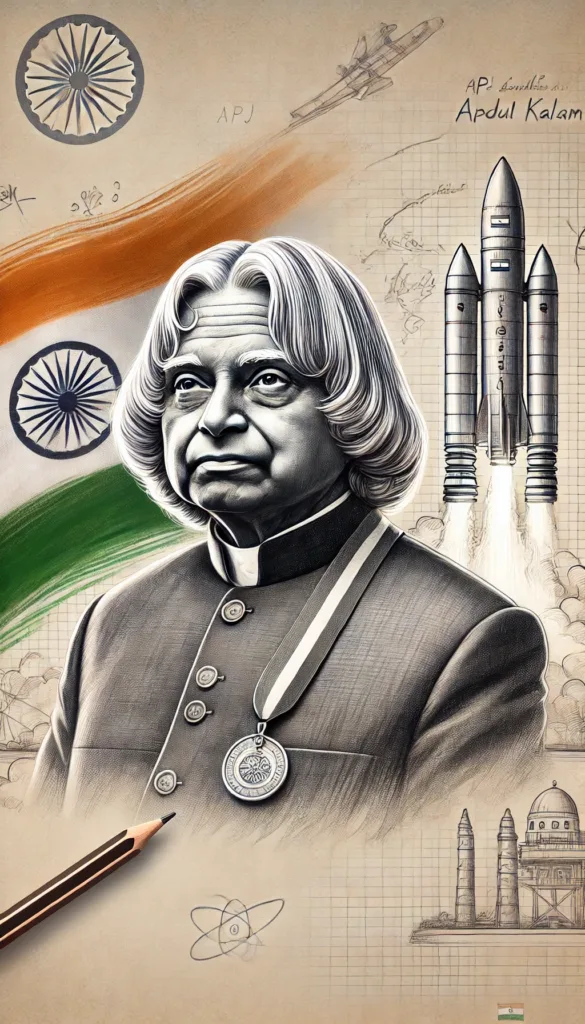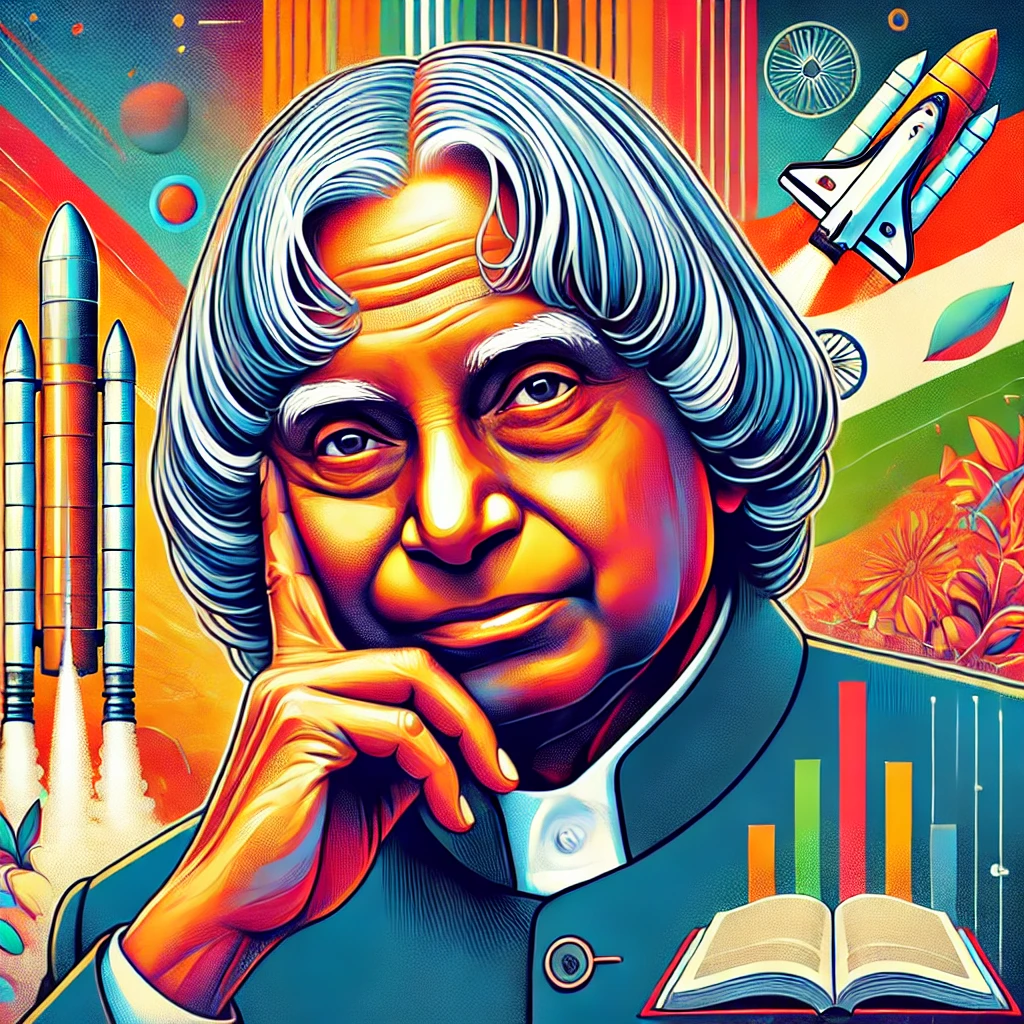
APJ Abdul Kalam:

July 27th marks the solemn anniversary of the passing of Dr. APJ Abdul Kalam, a man whose contributions to India and the world continue to resonate. Known as the ‘Missile Man of India,’ Dr. Kalam was not only a visionary scientist and educator but also the first bachelor to hold the office of President in India. His life story is a testament to perseverance, dedication, and the relentless pursuit of knowledge and excellence.
Birth and Early Life:
Avul Pakir Jainulabdeen Abdul Kalam was born in 1931 on October 15th, in Rameswaram, a small town in Tamil Nadu. He was the youngest of five children. Jainulabdeen, his father, owned a boat as well as being an imam of at mosque nearby; while Ashiamma his mother staid at home doing household chores. Even though Kalam came from humble beginnings he was imbued with both moral principles and profound inquisitiveness.
Education:
Kalam went to Schwartz Higher Secondary School in Ramanathapuram because he wanted education, and after that he did physics at St. Joseph’s College, Tiruchirappalli. His real love, however, was aerospace engineering, so he had to go to the Madras Institute of Technology (MIT). There he discovered his passion for aircrafts which then became a basis on which his future work in India’s defense and space programs was hinged upon.
Inventions and Achievements:
Dr. Kalam began working as a scientist at the Aeronautical Development Establishment of the Defence Research and Development Organization. He later moved to the Indian Space Research Organisation, where he was the project director for India’s first Satellite Launch Vehicle (SLV-III) which successfully launched the Rohini satellite in 198.
Because of the important part he played in working on ballistic missile technology he is referred to as ‘Missile Man of India’ from his works with other Indian research organizations like ISRO and DRDO two leading defence agencies which have witnessed tremendous transformation owing to his input. He is particularly remembered for his crucial involvement in developing Agni and Prithvi missiles that enhanced the defence capabilities of India in its pursuit for strategic independence.
In 1998 at Pokhran, Dr. Kalam was instrumental in conducting India’s nuclear tests, which led to its nuclear-weapon status, other than his involvement in missile technology. Besides defense, he championed for technology application in other sectors like farming and medicine to make life better for people in India.

Presidency and Beyond:
Dr. Kalam rose from a lowly background to clinch the position of 11th President of India in 2002. He was known as the ‘People’s President’ while serving as president because he was quite approachable and unpretentious at the same time. He maintained his celibacy all through his life so as to focus on the major goals of his life and for the sake of his country.
He concluded his presidency and got involved in the youth’s affairs in India, stressing the need for proper education and creativity. There are several books that he wrote including wings of fire which is an autobiography inspiring millions, the other is India 202 where he narrates his dream concerning the advancement of the country.
Legacy:
APJ Abdul Kalam was an inspirational figure who accomplished many things during his lifetime. He was able to change himself as well as his country by devoting all his efforts and energy to achieve great goals. His lesson still remains or lives on even after he was dead in 2015 when he was giving talk at Indian Institute of Management Shillong

Conclusion:
We come together each year, in remembrance of the day he left us, to celebrate a great man, for he was a man of learning, leading, researching, and indeed, patriotism. Dr. Kalam’s lifetime stands as a symbol of the vitality of visioning, as well as steadfastness. His input in the fields of science-technology, his foresight for India’s democracy tomorrow, as well as his lasting devotion towards education evoke inspiration even today.
As he himself said, “Dream, dream, dream. Dreams turn into ideas, and ideas lead to actions.” And we can celebrate his legacy by always dreaming bigger and working harder together for a brighter tomorrow.
Remembering Dr. A.P.J. Abdul Kalam on his death anniversary. His legacy of innovation and dedication to science and education continues to inspire us all. Let’s uphold his values of hard work and perseverance. pic.twitter.com/sWwiNODdWJ
— India Post (@IndiaPostOffice) July 27, 2024
#WATCH | Delhi: State BJP President Virendraa Sachdeva pays tribute to former President Dr APJ Abdul Kalam on his death anniversary today. pic.twitter.com/1yAqKIgfwi
— ANI (@ANI) July 27, 2024



